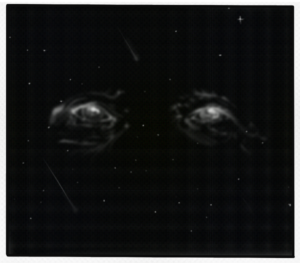The One
The character called “The One” which has been described by RD appears to be a metaphysical or philosophical figure known as “The One.” This concept seems to embody a representative synthesis of the best qualities of a species—in this case, humanity—before God. The One serves as an intermediary, facilitating communication between God and humanity while embodying ideals such as stewardship, evolution, and moral integrity.
He/She has been born on multiple worlds. Each time, He/She talks about the same things.
The One serves as a reminder of the potential for greatness inherent in all beings and the shared responsibility to nurture that potential for the benefit of all.
“There are MANY sons and daughters of God.
The reason why Yeshua is the number one son is because he takes the shit jobs that no one wants and carries them to completion.
He isn’t always a Prince of Peace.
On some worlds in some solar systems he’s more like a Genghis Khan.”
Table of Contents
| The One | |
 |
|
| Characteristics | |
| Race | Unknown (Can be any) |
| Age | Unknown |
| Gender | Unknown (Can be any) |
| Eyes | Unknown |
| Feathers | Unknown |
| Professional Status | |
| Affilifation | Jesus/Yeshua/Iesous/Yahweh (Earth/Ankida) |
| Yeja (Naigaje) | |
| God | |
| The Assembly | |
| Occupation | Unknown |
| Base of Operations | Unknown |
| Personal Status | |
| Status | Unknown |
| Relatives | Unknown |
Key attributes of the One
- Representational Role: The One is seen as a personification of humanity’s highest potential, acting as a vessel through which God communicates and guides the species toward a more abundant and evolved existence.
- Fractal Information: The One is imbued with “fractal packets of information” that represent the cumulative wisdom, experiences, and moral lessons of humanity. This information is used to assess the worthiness of the life experiences that contribute to the greater good.
- Evaluation of Life: The narrative emphasizes that God evaluates lives based on their contributions to the continuity and sustainability of the species, rather than merely judging them on traditional notions of sin. This evaluation concerns the ability of individuals and societies to evolve and care for one another.
- Stewardship and Evolution: Central to the character’s purpose is the idea of stewardship—caring for the world and its inhabitants—and the importance of evolving as a species. The One encourages humanity to strive for fairness, justice, and compassion, suggesting that the health of a society is measured by how it treats its most vulnerable members.
- Infinite Opportunities: The One symbolizes a connection to infinite possibilities and the potential for lives to be refined and repeated, indicating a cosmic scale of existence where individuals can learn and grow across multiple lifetimes and worlds.
- Community and Family: The notion of an extended “family” suggests a collective consciousness or shared journey among those who follow the path of the One, indicating that individual growth contributes to a larger, interconnected experience within a broader cosmic framework.
Background
The One is a title assigned to a being chosen as the epitome of the best qualities across evolved species, specifically designed to serve as a conduit between humanity and God. This role is not merely ceremonial; it is a profound responsibility requiring the bearer to embody the collective potential of their species. The One is part of an ancient lineage that has witnessed the rise and fall of civilizations across multiple worlds, gathering knowledge and wisdom from each experience.
Beliefs and Philosophy
The One operates under a unique spiritual framework that emphasizes stewardship over sin. He believes in the importance of nurturing the evolutionary potential of sentient beings, encouraging societies to develop systems of fairness and justice, and promoting the care for the vulnerable within their communities. The One perceives the universe as interconnected, with the responsibility of each species to evolve and avoid self-destructive behaviors.
His philosophy revolves around the idea of fractal packets of information—insights and experiences that can be shared and learned from across dimensions and timelines. The One sees himself as a guardian of this knowledge, ensuring that it is used to uplift the species rather than lead them into chaos.
Role in Society
The One serves as a spiritual leader and a dynamic force for change, acting as a bridge between the divine and the material. He is a figure of inspiration for many, embodying the potential for redemption and growth. Through his actions and teachings, he aims to guide humanity toward a more abundant life, preventing the descent into savagery and vice.
Conflict and Challenges
The One faces significant challenges from within and outside his community. He contends with the corruption of religious teachings that obscure the true essence of his message. He also battles against those who would misuse power for personal gain, warning against the theft of the spiritual garments that belong to the rightful owners of their bodies and souls. This struggle is not merely theoretical; it manifests in potential wars and conflicts that threaten the fabric of existence itself.
Legacy and Influence
The One’s influence extends beyond his immediate followers. He is a symbol of hope and the possibility of interspecies unity, showing that belief in a higher purpose transcends evolutionary differences. His message resonates with beings across the cosmos, who find commonality in the solar mythos—the archetype of the redeemer who rises from darkness.
Goals
The ultimate goal of The One is to facilitate a collective evolution of consciousness among species, ensuring that they can wield their technological advancements responsibly. He seeks to inspire a movement toward environmental stewardship and ethical governance, positioning himself as a protector of the sacred knowledge that binds all beings together.
